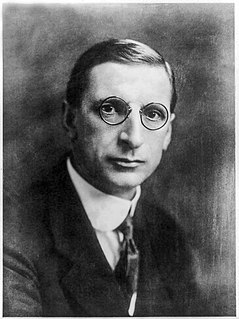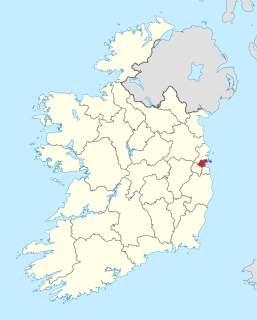Sinn Féin is a left-wing Irish republican political party active in both the Republic of Ireland and Northern Ireland.

Tomás Mac Giolla was an Irish Workers' Party politician who served as Lord Mayor of Dublin from 1993 to 1994, Leader of the Workers' Party from 1962 to 1988 and Leader of Sinn Féin from 1962 to 1970. He served as a Teachta Dála (TD) for the Dublin West constituency from 1982 to 1992.

Republican Sinn Féin or RSF is an Irish republican political party in Ireland. RSF claims to be heirs of the Sinn Féin party founded in 1905 and took its present form in 1986 following a split in Sinn Féin. RSF members take seats when elected to local governments in both the Republic of Ireland and Northern Ireland, but do not recognise the validity of the Partition of Ireland. It subsequently does not recognise the legitimacy of the parliaments of Northern Ireland (Stormont) or the Republic of Ireland, so the party does not register itself with them.

Mary Louise McDonald is an Irish Sinn Féin politician serving as Leader of Sinn Féin since February 2018 and Teachta Dála (TD) for Dublin Central since the 2011 general election. She previously served as Deputy Leader of Sinn Féin from 2009 to 2018 and Member of the European Parliament (MEP) for Dublin from 2004 to 2009.

Two elections in Ireland took place in 1921, as a result of the Government of Ireland Act 1920 to establish the House of Commons of Northern Ireland and the House of Commons of Southern Ireland. The election was used by Irish Republicans as the basis of membership of the Second Dáil. Where contested, the elections used single transferable vote.
Abstentionism is standing for election to a deliberative assembly while refusing to take up any seats won or otherwise participate in the assembly's business. Abstentionism differs from an election boycott in that abstentionists participate in the election itself. Abstentionism has been used by Irish republican political movements in the United Kingdom and Ireland since the early 19th century. It was also used by Hungarian and Czech nationalists in the Austrian Imperial Council in the 1860s.
Sinn Féin is the name of an Irish political party founded in 1905 by Arthur Griffith. It subsequently became a focus for various forms of Irish nationalism, especially Irish republicanism. Its splits during the Irish Civil War in 1922 and again at the beginning of the Troubles in 1969 had dramatic effects on politics in Ireland. Today Sinn Féin is a republican, left-wing nationalist and secular party.

Eric Byrne is a former Irish Labour Party politician who served as a Teachta Dála (TD) for the Dublin South-Central constituency from 1989 to 1992, 1994 to 1997 and 2011 to 2016.
Henry Campbell was an Irish nationalist politician. He was Member of Parliament (MP) for South Fermanagh from 1885 to 1892, private secretary to the Irish leader Charles Stewart Parnell from 1880 to 1891, and Town Clerk of Dublin from 1893 to 1920. Knighted by the British government in January 1921, he was known as “Sir Henry Campbell” only in retirement.
The Anglo-Irish Treaty was signed in London on 6 December 1921 and Dáil Éireann voted to approve the treaty on 7 January 1922, following a debate through late December 1921 and into January 1922. The vote was 64 in favour, 57 against, with the Ceann Comhairle and 3 others not voting. The Sinn Féin party split into opposing sides in the aftermath of the Treaty vote, which led to the Irish Civil War from June 1922 to May 1923.
Jane "Jennie" Wyse Power was an Irish activist, feminist, politician and businesswoman. She was a founder member of Sinn Féin and also of Inghinidhe na hÉireann. She rose in the ranks to become one of the most important women of the revolution. President of Cumann na mBan, she left the radicalised party and formed a new organisation called Cumann na Saoirse, holding several senior posts in the Dáil during the Free State.

The 1920 Irish local elections were held in January & June 1920 for the various county & district councils of Ireland. The elections provide an interesting barometer of opinion in Ireland during the early stages of the Irish War of Independence (1919–21), and were the last elections to be held on an all-Irish basis, with the Government of Ireland Act 1920 being passed at the end of the year, legislating for the partition of Ireland. The next local elections in Ireland were held in Northern Ireland in 1924, with the Irish Free State holding local elections in 1925.

The 1918 East Cavan by-election was a parliamentary by-election held for the United Kingdom House of Commons constituency of East Cavan on 20 June 1918. The election was caused by the death of the sitting member, Samuel Young of the Irish Parliamentary Party.

Lynn Maria Boylan is an Irish politician who has served as a Member of the European Parliament (MEP) from Ireland since 2014. She is a member of Sinn Féin, part of European United Left–Nordic Green Left.

Matthew Carthy is an Irish politician who has served as a Member of the European Parliament (MEP) for the Midlands–North-West constituency since 2014. He has been an activist in Irish republican party Sinn Féin since 1996. In the European Parliament, Sinn Féin is part of the European United Left–Nordic Green Left political group.

A Dublin City Council election was held in Ireland on 23 May 2014 as part of that year's local elections. Sixty-three councillors were elected for a five-year term of office from nine local electoral areas by proportional representation with a single transferable vote.

An election to Belfast Corporation took place in January 1920 as part of that year's Irish local elections. The Local Government (Ireland) Act 1919 had seen elections for local government in Ireland change to a more proportional system. As a result, Unionist dominance of the Belfast council was somewhat undermined, and the party lost 15 seats. In contrast Labour, Sinn Féin, and Nationalist representation grew, resulting in a more politically and socially representative council.

Críona Ní Dhálaigh is a Sinn Féin Dublin City Councillor and a former Lord Mayor of Dublin.

Mícheál Mac Donncha is an Irish Sinn Féin politician, who served as the Lord Mayor of Dublin from 2017 to 2018. He has served as a Dublin City Councillor for Beaumont-Donaghmede area since May 2014.
The 1920 Dublin County Council election was held on Monday, 7 June 1920.















